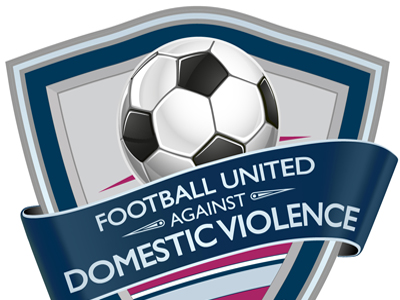
By Polly Neate
Most football fans are completely opposed to domestic violence.
However, following the last World Cup there was increased reporting of domestic violence following games.
Because of this, the World Cup poses a particular set of challenges for social workers who work with families, given a large number will be affected by domestic violence.
Increased alcohol consumption, high emotions and the sometimes aggressively masculine culture which surrounds football can cause an increase in incidents of domestic violence. Women and children living with violent perpetrators may be more at risk during the World Cup.
Providing the right support at a particularly risky time is difficult for social workers when resources are heavily targeted only at the most “high-risk” victims.
Most women don’t report the abuse they are experiencing until a very late stage. But early intervention must include supporting victims to find safety for themselves and their children early on if it is to be effective.
Attention therefore needs to be focussed on earlier identification to trigger the right level of support so as not to worsen the situation. One key step in supporting families through early intervention is to be able to recognise and understand domestic violence.
Domestic Violence is defined by the Home Office as: “Any incident or pattern of incidents of controlling, coercive or threatening behaviour, violence or abuse between those aged 16 or over who are or have been intimate partners or family members regardless of gender or sexuality.”
It’s important to recognise that 89% of victims of repeat violence are women, and the vast majority of perpetrators are men.
However perpetrators engage in a variety of behaviours designed to control their victims and make them less credible, as can be seen in this wheel:
If a social worker sees these kinds of behaviours, they should recognise that other violence is probably occurring too.
A perpetrator will often use the threat of ‘unfeeling’ social workers as another form of control over a woman. She may feel she cannot disclose or leave him for fear that social services will take her children into care. It is important to recognise the perpetrator and support the woman where children are at risk to deny perpetrators that power.
To protect women and children at risk of domestic violence generally, there are four key steps:
- Flag the victim’s address with the police. This will provide background information making the primary aggressor identifiable in the event of a callout;
- Get to know your local specialist domestic violence service provider and how to refer to them. When speaking to a woman about abuse she is experiencing, offer her links to people who can support her to leave safely. Whilst the risk of staying may be very high, leaving the relationship does not guarantee that the violence will stop. In fact, a woman and her children are often in most danger when she is planning or making her exit;
- Follow your department’s domestic violence policies and ensure responses to domestic violence are as fast as possible to ensure the victim is supported and the perpetrator knows he will be held accountable;
- Seek specialist training on domestic violence, for example from the Women’s Aid National Training Centre, to improve your practice and that of your department.
During the World Cup, you can:
- Avoid minimising abuse or blaming it on football to avoid colluding with abusers who might attempt to blame football for their behaviour;
- Talk about safety planning with the victim prior to games;
- Ask women and children if they are experiencing abuse and provide them with a referral to support services if they disclose.
Women’s Aid is launching the Football United Against Domestic Violence campaign this week, to coincide with the beginning of the World Cup, to bring the football community together against domestic violence.
We want to work with role models in football and engage clubs to send out a clear message that domestic violence is always unacceptable.
In the meantime, concerted efforts by all professionals, including social workers, are vital if we are to protect women and children at increased risk of violence this summer.




 Bournemouth, Christchurch and Poole
Bournemouth, Christchurch and Poole  Hampshire County Council
Hampshire County Council  Lincolnshire County Council
Lincolnshire County Council  Norfolk County Council
Norfolk County Council  Northamptonshire Children’s Trust
Northamptonshire Children’s Trust  South Gloucestershire Council
South Gloucestershire Council  Wiltshire Council
Wiltshire Council  Wokingham Borough Council
Wokingham Borough Council  Children and young people with SEND are ‘valued and prioritised’ in Wiltshire, find inspectors
Children and young people with SEND are ‘valued and prioritised’ in Wiltshire, find inspectors  How specialist refugee teams benefit young people and social workers
How specialist refugee teams benefit young people and social workers  Podcast: returning to social work after becoming a first-time parent
Podcast: returning to social work after becoming a first-time parent  Podcast: would you work for an inadequate-rated service?
Podcast: would you work for an inadequate-rated service?  Family help: one local authority’s experience of the model
Family help: one local authority’s experience of the model  Workforce Insights – showcasing a selection of the sector’s top recruiters
Workforce Insights – showcasing a selection of the sector’s top recruiters 

 Facebook
Facebook X
X LinkedIn
LinkedIn Instagram
Instagram
Comments are closed.